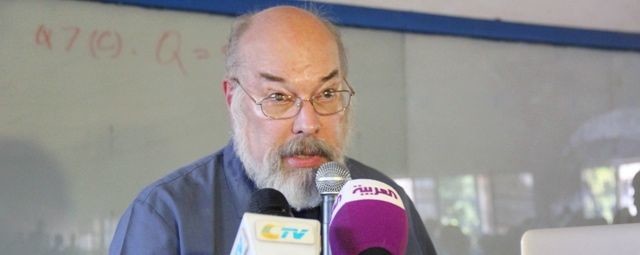A leading scholar of South Sudanese affairs said Saturday that federalism is not the same as Kokora.
Giving a lecture on federalism during a debate at Juba University, Dr Douglas Johnson of the Rift Valley Institute said that Kokora should not be considered as a system of government.
“Let us be clear, Kokora is not the same as federalism,” Johnson said.
Federalism is a government system that splits powers between a central authority and state governments.
Kokora was a movement of Equatorian particularism in the early 1980s at a time when South Sudan was divided into three separate political regions.
Many southern Sudanese from greater Bahr el Ghazal and Upper Nile regions were forcefully evicted from Equatoria during Kokora.
Leaders of Equatoria and Riek Machar’s SPLA-In Opposition support federalism while President Salva Kiir and some politicians from the Bahr el Ghazal states are opposed to the system, saying it is a repeat of Kokora.
Government officials, diplomats, civil society groups, political parties, and students attended the university debate, which was moderated by Dr Luka Biong, former South Sudan Minister in the office of the President.
Johnson said federalism has been misunderstood and misinterpreted because of the way Kokora was applied at the start of Sudan’s Second Civil War.
He said those who lived through that movement and were pushed out of Equatoria have reason to be suspicious of a new Kokora, though he added that Kokora did not result in the creation of a separate federal region in Equatoria or any other South Sudanese region.
In a keynote address, Johnson said that the federalism debate in South Sudan has been complicated by the ongoing crisis here. He said one side has adopted federalism as a political platform while the other side views it as a version of disloyalty.
He said there needs to be formal and open discussions among South Sudanese citizens about federalism so that people can understand what federalism might mean and decide if they support it.
“If we can learn anything from past history of South Sudanese political thought, it is that federalism means many things,” Johnson said. He said the term can describe a highly centralized government system as well as more radical devolution projects.
Johnson said the federation of Sudan in 1957 was meant to create concurrent central and state governments along the principles of federalism.
Another participant at the debate, Western Equatorian legislator Daniel Isbone Zingifuaboro, said that federalism is the division of power, not the division of people. He said that federalism does not make villages into states, or give power over states to ethnic groups.
Zingifuaboro said that federalism is also not the same as decentralization. A federal system, he said, is when people give power to local authorities, for example through voting. Decentralization, on the other hand, means the central government devolves its own powers to the local levels.
South Sudan’s current government is nominally ‘decentralized’ rather than federal. The national government in Juba has wide-ranging powers over state and even local governments. Four of the ten state governors, for example, are appointees of the president and were not elected.
A poll taken 15 December 2013 by Dr Jaafar Karim Juma Mori, head of the department of statistics and demography at found that 67% of university students in Juba were in favor of federalism and 33% were against.
Greater Equatorian university students reported the highest levels of support for federalism with 87.8% in favor of the system, whereas Bahr el Ghazal University students were most opposed, with only 18.2% in favor. 40% of Upper Nile University students supported federalism.
Photos by Radio Tamazuj




